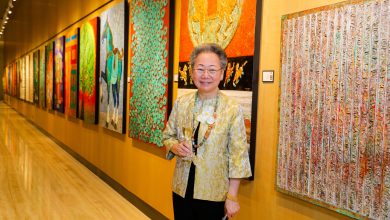Have you ever head of the words FOMO (Fear of Missing Out) or TBH (To Be Honest)? You may have encountered them when you were chatting with a younger friend. You may have also heard it being uttered by your children when they’re exchanging SMS with you.
The funny thing is, your parents also have invented some terms during their time. So, millennials, don’t ever think that using code words or your own language is far from normal.
Language, like anything else in this world, changes every time. But how does it change and what are the common factors?
In a column by UP Chancellor Michael Tan entitled “Why languages die,” he mentioned about how smaller ethnolinguistic groups lose their languages because their young ones pick up the language of a larger group.
He said that young people are attracted to the languages of an economically more powerful group.
He cited the Cebuano language as an example. Some of the young members of indigenous groups tend to find new economic opportunities outside of their tribe.
They needed to adapt to the Cebuano language being used by the majority in order to land a job in the urban areas and survive.
Tan said, “There is the association of Cebuano or Tagalog with modernity and prosperity, represented by the allure of youth culture with its cell phones, celebrities, and movie stars.”
Speaking of movie stars, one of the Filipino celebrities who have propagated slang terms is ABS-CBN host and comedian Vice Ganda. Among the slangs that Vice popularized include “E ‘di wow”, “unkabogable”, and “thunders”, among others.
The Filipino Times listed some of the most commonly used slangs and other code words that millennials used in conversations nowadays:
“Triggered”
This means that whatever it is the person saw or experienced, led her/him to an immediate state of anger.
The word stems from the phrase “Trigger Warning” used in blogs as a sign that website visitors might read, see, or watch something hurtful.
“Woke”
What used to be the past tense of “Wake” has become a word that signifies the awareness of a person towards an issue, particularly on social discrimination and injustice.
However, do note that the term can be used for both ironic and non-ironic purposes.
“The struggle is real”
You may have read it on social media or heard it from your friends and acquaintances. It usually refers to a phase in their life where they are dealing with a tough problem.
“On point”
When someone else says you’re ‘on point’ – that means what you’re doing is right or the way or manner you expressed your thoughts aligns with whoever you’re talking to.
“Flex”
Flexing is another term for ‘showing off’ – usually related to someone’s personal belonging or physique.
“Sorry not sorry”
This is a fake apology. It’s another way of saying you are a little sorry to the person but he/she doesn’t deserve it.
“Nakakainis ka talaga!” (I really hate you!)
Back then you’ll easily think that it means the person saying it hates you. But today, it’s the other way around. It’s commonly uttered by people close to you who have started to develop or may already have special feelings for you.
Tea
No. This isn’t something you can drink. It refers to gossip.
Fact: It was used before in the African-American communities, then became more widely known on TV shows like The Real Housewives of Atlanta.
“Malapit na Ako!” (Almost there but not really.)
Don’t be fooled. These are usually common words used by someone who is late but just buying time to make you wait some more. The next time someone tells you this, you better ask them specifically where their exact location really is.
“Try ko”
This is a subtle way of saying I won’t be able to make it. You would often follow them up with text messages or chats but they would suddenly stop responding. If your friend tells you this, better not let your hopes up.
“MU”
It’s no longer just limited to mutual understanding wherein two people are exclusively dating. Now, it means “We’re on, but we can be open to other boyfriends or girlfriends.” In Cebuano term, “MU” means “mura’g uyab” (You are together but not really. Quite confusing, isn’t it?)
“High blood”
The word “high blood” isn’t only limited to the definition of an illness. Now, it also means being angry or agitated.
So when someone says, “Na-high blood ako sa’yo,” better keep your distance.
Generation X Slang:
The Filipino Times also compiled a list of some of the jargons used by older generations before.
“Erpats/Ermats”
It’s actually the taken from the Latin words ‘mater’ and ‘pater’ which means mother and father.
“Tibak”
It’s the jumbled spelling for the word “aktibista”. Usually, this word is often used to refer to hardcore activists.
“Repapips”
It’s derived from the word “pare” which means a friend or a buddy.
“Tsikot”
It means “kotse” in Tagalog, or a word referring to your car.
“Bebot”
It usually refers to girls or women in general. But it evolved and later on, it referred to sexy and fit women.
“Japorms”
It is formed from the word ‘maporma’ which means someone who’s “stylish”.
“Bagets”
This is usually used to refer to younger people. It became even more popular in a teen movie produced in 1984 entitled, “Bagets”. It starred Aga Muhlach (Adie), Herbert Bautista (Gilbert), Raymond Lauchengco (Arnel), William Martinez (Tonton), and J.C. Bonnin (Topee).
“Consuelo de bobo”
This means a band-aid solution or a mock consolation given to those who have suffered loss, rejection, or other hardships in life.
“Chibog”
It actually means, “food” or “to eat” depending on how it is used in a sentence. So, when someone asks if “may chibog ba diyan”, they are asking if there’s food. But when someone says, “tara, chibog tayo”, it means let’s go eat.
“Syota”
It refers to the person whom you are in a relationship with. It actually means, “short time,” referring to short-term relationships. When someone asks you to be his/her “syota”, you better not make serious commitment about it.




